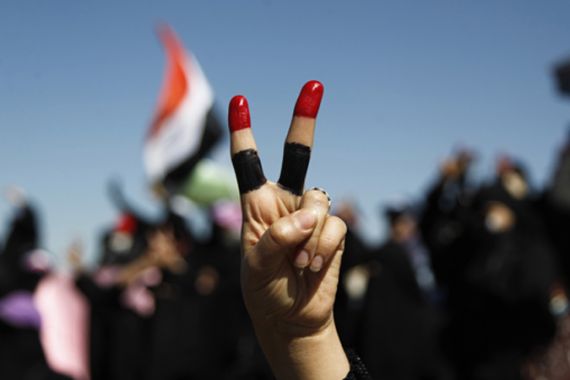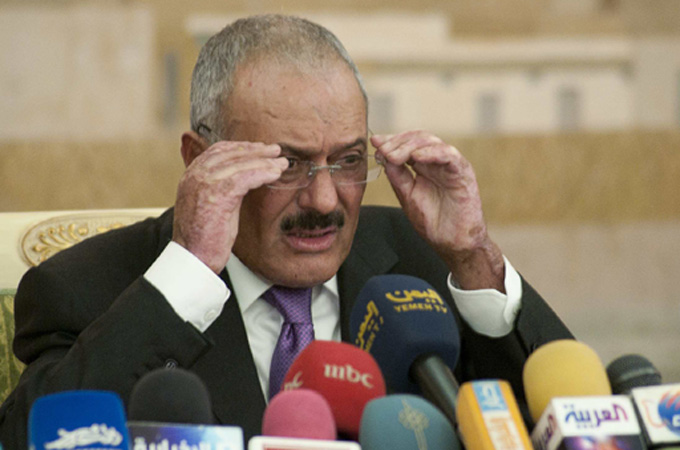Yemen: Bloody protests and broken agreements
After mass rallies and three failed pledges to resign, president signs power transfer deal, but uncertainty remains.

 |
| Yemen’s outgoing President Ali Abdullah Saleh has backed out of three previous agreements to step down [Reuters] |
After months of turmoil, mass street protests and bloody factional fights, Yemen’s President Ali Abdullah Saleh signed a long-awaited agreement on November 23, 2011, to transfer power to his deputy.
The deal effectively ended Saleh’s more than three decades of rule and marked another victory – if partial – for the pro-democracy “Arab Awakening” protest movement that has swept the region.
Protests first erupted in the capital, Sanaa, in January, shortly after the fall of the former Tunisian president, Zine El Abidine Ben Ali. Thousands of people flocked to Sanaa’s Change Square – a site that would become the focal point of the demonstrations – in protest against government corruption, unemployment and woeful economic conditions.
The protests soon spread, bringing thousands and at times – hundreds of thousands – of people into the streets of cities across the country, and with them came escalating calls for Saleh to resign.
His refusal to step down preceded an increasingly heavy-handed attempt to crush the protests. Activists accused government forces of deliberately targeting and killing protesters, and hundreds of people were left dead in the ensuing months of clashes.
The fighting came to a head on June 3, when an attack on the presidential palace left Saleh wounded. His departure from Yemen to seek medical treatment in Saudi Arabia brought thousands of jubilant protesters to the streets of the capital, but the political crisis only worsened, and Saleh eventually returned to a fractious Yemen in September.
With the signing of the transfer of power deal in November, the future of Yemen is uncertain.
Challenges ahead
Scepticism remains among many Yemenis who have already witnessed Saleh backing out of three earlier agreements to step down. And in a country where Saleh’s family members continue to hold high-ranking posts in the military and intelligence service, doubts abound over what tangible political changes 2012 will bring.
What is certain is the ever-increasing number of challenges Yemen’s new government will have to tackle.
The confrontation between Saleh’s forces and his opponents began in January, and by many accounts – pushed Yemen, one of the world’s poorest countries, to the edge.
The months of anti-government protests exacerbated the country’s economic woes and sparked the rising prices of food and petroleum products, leaving Yemen’s poor increasingly desperate to survive.
Added to the mix of challenges are the country’s dwindling water and oil reserves, a rapidly expanding population of unemployed youth and ongoing conflicts with Yemen’s opposition – including the Houthis, northern Shia rebels who have fought a long-running battle against the government, and the Southern Movement, a secessionist group in the south.
Yemen’s struggles were internationally recognised when the Norwegian Nobel Committee named Yemeni women’s rights activist Tawakkol Karman one if its three winners of the Nobel Peace Prize.
Karman, who has led demonstrations calling for change in the capital, Sanaa, for years, dedicated her victory in October to the “youth of the Arab Spring” and the “memories of the martyrs”.
“We will build our country with peace [and] I give this award for all the youth in the Arab world – in Egypt, in Libya, Syria and Yemen. All the youth and women, this is a victory for our demand for citizenship and human rights,” she told Al Jazeera in October.
All eyes are on 2012 to determine whether the New Year will bring about the very demands Yemenis fought for in 2011.